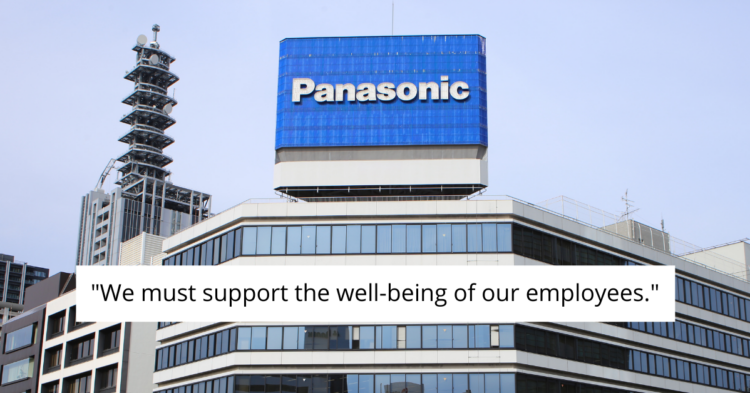Have you ever noticed how much better rested you feel when you work a four-day week with three-day weekends?
Yes, the four-day work week is basically the dream. While most employers Stateside have yet to institute it, at least one Japanese corporation has made a bold move.
We’ve been hearing about the four-day work week forever.

While the five-day week is standard for most of us working stiffs, the idea of a four-day work week is so intriguing that it has its own Wikipedia page . While some companies have slowly moved towards a four-day week, five days remains the standard for most people.
Panasonic is making a big move.

The Japanese industrial and tech giant, which employs over a quarter of a million employees in all, has announced that it’ll offer its employees in Japan the option of working just four days a week.
It’s part of a larger trend in Japan.

The Japanese government recommended in 2021 that private employers offer a shorter work week to their employees in an effort to curb burnout and increase productivity.
According to Nikkei Asia, eight percent of Japanese companies offer more than two guaranteed days off per week.
Panasonic wants its employees to have a life outside of work.

“We must support the well-being of our employees,” said Panasonic’s president and group CEO Yuki Kusumi told investors.
According to Nikkei Asia, Panasonic will encourage employees to pursue personal interests, including volunteering or side jobs.
Results are promising.

While Panasonic is still working out the details of its shorter week, there’s plenty of evidence to suggest that shorter weeks help to keep productivity high.
Back in 2019, Microsoft’s Japanese division tried out a shorter work week, and productivity went up by 40 percent .
The trend is picking up around the world.

Numerous Japanese companies, along with various employers in the United Kingdom, New Zealand and other countries, have permanently instituted, or at least trialed, four-day work weeks.
Sadly for our American readers, this trend has yet to take hold in the United States.
What does a shorter work week actually mean?

It isn’t quite as simple as getting an extra day off, although that’s a big part of the appeal. Employers must figure out a way to keep things running while giving workers extra time off. This could mean asking them to work extra hours during the week, or hiring more employees.
Does Japan have a workaholic culture?

This is certainly part of the stereotype, but Japanese employees actually have a good amount of time off. According to the Organization for Economic Cooperation and Development, Japan ranks 26th on the list of most hours worked by the average employee.
The U.S. sits at number 11 on this list.
It seems to be the way of the future (in Japan, at least).

Nikkei Asia’s reporting says that “four-day work weeks are expected to be one of the keys to boosting productivity and improving work-life balance here. The government also said it will promote the concept under its latest guidelines for economic and fiscal policy, approved by the cabinet in June.”
What do you think?

I think virtually everyone reading this would prefer to have longer weekends and shorter work weeks.
Let us know what you think of this story, and what you’d do with an extra day off every week, in the comments.

















































